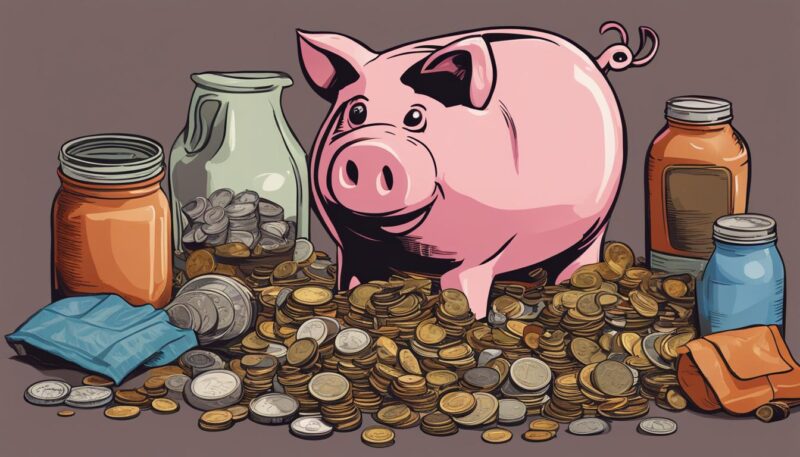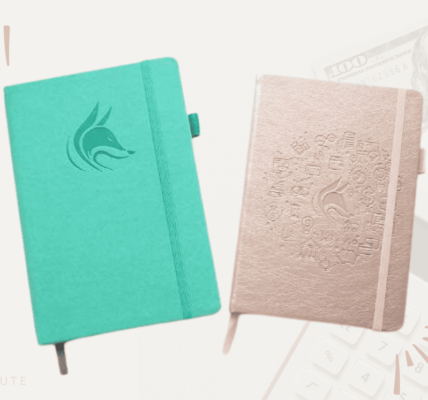Did you know that the average American household carries over $6,000 in credit card debt? Living on a small budget might seem challenging, but it is not impossible. With the right strategies and mindset, you can enjoy a fulfilling life while still being financially responsible. In this article, we will explore practical tips and advice for frugal living, helping you stretch your dollars and achieve your financial goals. Whether you want to pay off debt, save for the future, or simply make the most of your income, these budgeting tips and money-saving strategies will set you on the path to success.
Key Takeaways:
- Living on a small budget is achievable with the right strategies and mindset.
- By implementing frugal living tips, you can save money, pay off debt, and achieve financial goals.
- Practices such as minimalism, buying used items, cooking at home, and prioritizing essential expenses can help you live well within a small budget.
- Being mindful of your spending and making conscious choices can lead to long-term financial independence.
- Take advantage of free resources and adopt a DIY mentality to further cut costs and maximize savings.
Practical Tips for Living Frugally

Living on a small budget doesn’t mean depriving yourself of a fulfilling lifestyle. With some strategic planning and thrifty habits, you can make the most of your financial resources without sacrificing enjoyment. Here are practical tips to help you live frugally and stretch your budget:
- Embrace minimalism: Opt for smaller living spaces and declutter to avoid the need for excessive possessions.
- Consider transportation costs: Use one car per family if possible, opt for smaller car models, or explore alternative transportation methods.
- Renting vs. owning: Evaluate the long-term costs of renting versus owning a home and make an informed decision.
- Look for used items: Freecycle.org, Craigslist, garage sales, and thrift shops offer opportunities to find affordable used items.
- Cook at home: Eating out is often more expensive than cooking at home, so create a weekly menu, buy groceries, and prepare meals in advance.
- Adopt a minimalist wardrobe: Simplify clothing choices by sticking to versatile and timeless pieces that can be mixed and matched.
- Avoid online impulse buys: Be mindful of online purchases and create a 30-day list to avoid impulsive spending.
- Limit shopping trips: Shop with a purpose and avoid making unnecessary purchases by staying away from malls and stores unless there is a specific need.
- Utilize the library: Borrow books and DVDs from the library instead of buying them.
- Opt for free or low-cost entertainment: Find inexpensive ways to have fun, such as exploring nature, hosting game nights, or attending community events.
- Prioritize frugal exercise: Engage in physical activities that don’t require expensive gym memberships, such as walking, biking, or practicing yoga at home.
- Focus on health: Invest in a healthy lifestyle to avoid costly medical bills in the long run.
- Sell clutter: Declutter your home and sell unwanted items through garage sales or online platforms.
- Be frugal with gift-giving: Consider handmade or consumable gifts as affordable alternatives to expensive presents.
- Quit smoking: Quitting smoking not only saves money on cigarettes but also reduces long-term medical costs.
- Limit alcohol and sweets: Reducing consumption of alcohol and sweets helps save money and improves overall health.
- Drink water: Opt for water instead of expensive beverages to save money and cut calories.
- Batch errands: Plan errands efficiently to save time, gas, and energy.
- Enjoy home activities: Spend quality time at home, engaging in activities that bring joy and relaxation.
- Unplug and conserve energy: Turn off unused appliances, switch to cloth napkins, and adjust thermostat settings to save on energy bills.
By incorporating these cost-effective lifestyle tips into your daily routines, you can successfully achieve financial planning on a budget and embrace a thrifty living approach that allows you to make the most of your resources.
| Category | Renting | Owning |
|---|---|---|
| Mortgage/Rent Payment | $1,200 | $1,500 |
| Property Taxes | N/A | $300 |
| Home Insurance | N/A | $100 |
| Home Maintenance | N/A | $200 |
| Total Monthly Cost | $1,200 | $2,100 |
The table above provides a comparison of the monthly costs involved in renting versus owning a home. While renting may initially seem more cost-effective, owning a home comes with additional expenses such as property taxes, home insurance, and maintenance. It is essential to carefully evaluate these costs to make an informed decision that aligns with your financial goals and circumstances.
Frugal Tips for Living on a Small Budget

Living on a small budget doesn’t mean compromising on the quality of life. With some budget-friendly living ideas and economical living suggestions, it is possible to enjoy a fulfilling lifestyle while being mindful of expenses. Here are some tips to help you stretch your budget:
- Shop at budget grocery stores: Save money on groceries by shopping at budget stores like Aldi, Lidl, or Trader Joe’s. These stores often offer lower prices without compromising on quality.
- Negotiate bills: Take the time to negotiate bills with service providers to potentially secure better rates or switch to a more affordable option. This can include bills for utilities, internet services, and insurance.
- Be mindful of utilities: Pay attention to energy and water usage to reduce monthly bills and save the environment. Simple steps like turning off lights when not in use, using energy-efficient appliances, and fixing leaky faucets can make a significant difference.
- Bring lunch from home: Packing lunch instead of eating out can lead to significant savings and healthier eating habits. Plan your meals in advance and prepare them at home to avoid unnecessary expenses.
- Prioritize debt repayment: Pay off high-interest debts first, such as credit card debt, to save on interest payments and achieve financial freedom. Create a repayment plan and stick to it.
- Choose cheaper drink options: Opt for less expensive drinks at coffee shops or make coffee at home to save money. Consider investing in a travel mug to enjoy your favorite beverage on the go.
- Minimize food waste: Avoid throwing away food by meal planning, using leftovers, and being mindful of expiration dates. Only buy what you need and make the most of the ingredients you have.
- Pay attention to sales and coupons: Take advantage of sales, discounts, and coupons to save money on purchases. Keep an eye out for deals and shop strategically to get the best value for your money.
- Embrace DIY: Learn to do things yourself, such as home repairs, gardening, and basic car maintenance, to cut costs on professional services. YouTube tutorials and online resources can be valuable in acquiring new skills.
- Utilize free resources: Make use of freebies and resources available in the community, such as libraries, parks, and free events. Borrow books, attend workshops, and explore nature without spending a dime.
By incorporating these frugal tips into your lifestyle, you can live comfortably on a small budget while still enjoying the things that matter most to you. Remember, being mindful of your expenses and making conscious choices can lead to a financially stable and fulfilling life.

The Power of Frugal Living
Frugal living is a powerful financial approach that empowers individuals to take control of their finances and make intentional and mindful spending decisions. By adopting a frugal mindset and implementing money-saving strategies, individuals can achieve numerous benefits that go beyond just saving money.
One of the key advantages of frugal living is the ability to achieve financial independence. By living within their means and avoiding unnecessary expenses, individuals can build a strong financial foundation and reduce their reliance on debt. This paves the way for greater financial freedom and the ability to pursue long-term goals such as early retirement or starting a business.
In addition to financial independence, frugal living promotes mindful spending. It encourages individuals to evaluate their needs versus wants and make conscious choices about how they allocate their resources. This leads to a more intentional and fulfilling life, where spending is aligned with personal values and goals. By prioritizing what truly matters, individuals can find greater satisfaction and fulfillment in their financial decisions.
Furthermore, frugal living offers the opportunity to develop good money habits and build resilience. By practicing frugality, individuals learn to be resourceful, creative, and adaptable. They become skilled at finding cost-effective solutions and making the most out of limited resources. This not only helps them weather financial hardships but also equips them with valuable life skills that can be applied to various aspects of their live
You can also read: Top Budget Planner Books

FAQ
What is frugal living?
Frugal living involves spending less than you earn and using the difference to pay off debt, save, or invest. It is about being mindful of your expenses and finding ways to cut back on unnecessary costs.
How can I embrace minimalism?
To embrace minimalism, opt for smaller living spaces, declutter your possessions, and prioritize experiences over material possessions.
What are some ways to save on transportation costs?
Consider using one car per family, opting for smaller car models, carpooling, or exploring alternative transportation methods like biking or public transportation.
Is it better to rent or own a home on a small budget?
It is important to evaluate the long-term costs of renting versus owning a home. Renting may be more budget-friendly initially, while owning provides the potential for building equity.
Where can I find affordable used items?
Websites like Freecycle.org and Craigslist, garage sales, and thrift shops offer opportunities to find affordable used items.
How can I save money on groceries?
Save money on groceries by shopping at budget stores, planning your meals in advance, and cooking at home instead of eating out.
What are some frugal entertainment options?
Explore nature, host game nights, attend community events, or utilize local libraries for free or low-cost entertainment options.
How can I prioritize my debt repayment?
Start by paying off high-interest debts, such as credit card debt, to save on interest payments and regain control of your finances.
How can I save on monthly bills?
Negotiate bills with service providers, be mindful of energy and water usage, and consider switching to more affordable options.
What are some frugal tips for gift-giving?
Consider handmade or consumable gifts as affordable alternatives to expensive presents.
How can I save money on everyday expenses?
Look for sales, discounts, and coupons, embrace DIY projects, utilize free community resources, and prioritize your spending based on personal values.
What are the benefits of frugal living?
Frugal living can lead to financial independence, reduced stress, flexible lifestyle options, and the ability to prioritize spending on what truly matters to you.




